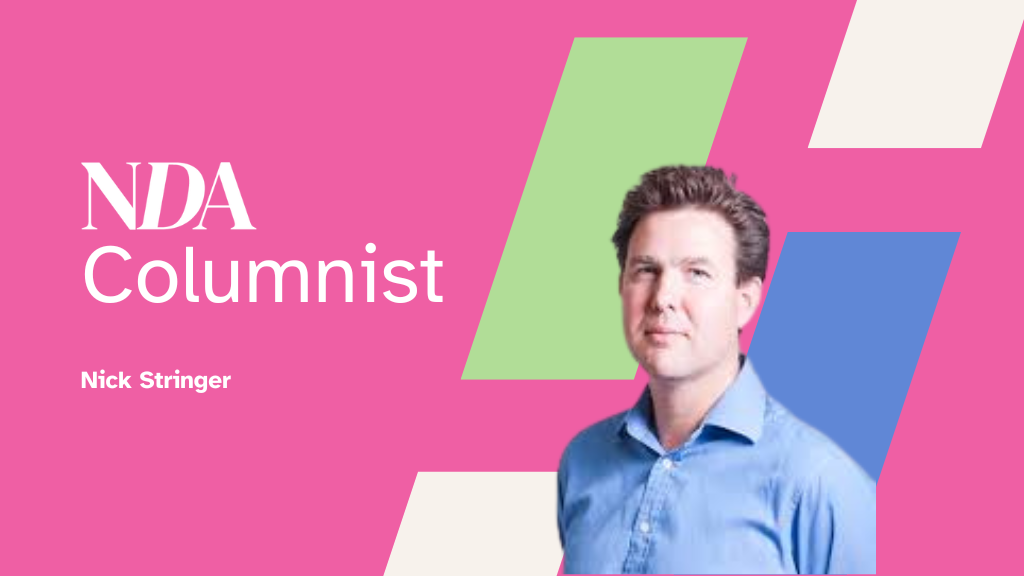By Nick Stringer, a global technology, public policy, and regulatory affairs adviser. His extensive experience includes serving as the former Director of Regulatory Affairs at the UK Internet Advertising Bureau (IAB UK).
“Everyone is in favour of free speech. Hardly a day passes without it being extolled, but some people’s idea of it is that they are free to say what they like, but if anyone says anything back, that is an outrage.” – Winston Churchill
The ongoing debate over Elon Musk’s comments on advertising on X and his decision to sue the Global Association of Responsible Media (GARM) – a well-intentioned digital safety initiative by the World Federation of Advertisers (WFA) – is quite perplexing.
While much has been said, my experience with advertising ‘brand safety’ issues at IAB UK and the Trustworthy Accountability Group (TAG) encourages me to share my perspective. This debate could be perceived as a cultural clash over ‘freedom of speech’ but it misses a vital point: the need to cultivate a safer and more trustworthy internet. I support freedom of expression, but I don’t think it should be considered absolute. In the past, our freedom of speech had natural limits and boundaries, but the rise of social media has diminished this relevance.
In today’s digital age, we all – including ‘Big Tech’ – must exercise greater caution and responsibility to build a more trustworthy digital environment. Failing to do so will likely invite avoidable scrutiny and even excessive regulation, which may ultimately benefit no one.
This is the latest article in the ‘ByteWise Insights’ series, examining society’s complex ties with technology and proposing public policy solutions. These latest musings focus on the ‘brand safety’ debate, emphasising advertisers – despite recent events – to embrace this challenge, as well as highlighting the importance of industry-wide collaboration to create a trustworthy digital environment. Do we really want to see the proliferation of hate-speech which attracts clicks and revenue, thereby perpetuating the issue?
Advertising In a digital world
I have written about the role of advertising in creating a safer and more trusted digital world, particularly for young people. In 2024, advertisers are expected to spend over a trillion US dollars globally: digital advertising is expected to account for over 75% of all this spending (US$750bn). This investment helps fund many of the websites and social media platforms that we all enjoy accessing for little or no cost. Global social media spending is expected to reach nearly £200 billion in 2024. Unfortunately for X – no doubt due to Musk’s comments and actions, and the subsequent reactions within the advertising community – ad spending on the platform is in decline and is projected to drop by 6.4% globally in 2024.
A trillion US dollars? The magnitude of this number is mind-boggling: it’s more than many countries’ GDPs or the entire US annual defence budget. With this spending power comes significant responsibility for advertisers, especially in holding agency and technology partners accountable. This is often overlooked in the quest for revenues (media owner / technology company) and audiences (advertiser / agency).
Yet, I can count on my hands the number of in-house marketers who give ‘brand safety’ the attention it deserves. I understand that advertisers are businesses focused on selling more of their products and services. However, if they don’t take action – either by persuading social media platforms (and others) to ‘clean up their act’ or by directing their budgets toward more trusted channels – there will ultimately be a smaller pot of people left to market their products and services to. And of course, their brands may be associated with content that they don’t want them to be.
Own goal for X as well as industry?
If we genuinely want to build a safer and more trusted digital world, we need to engage (and encourage engagement) in a sensible discussion. Unfortunately, GARM was shut down after Musk filed a lawsuit accusing advertisers of illegally boycotting the platform. GARM provided the advertising industry with a global framework that acknowledged the subjective nature of ‘ad misplacement’ or ‘ad adjacency’ issues across different regions. It set out standards while allowing for flexibility, and understanding, for instance, that content deemed inappropriate in Japan might not be considered so in the UK. Along with other (still live) complementary initiatives, it helped advertisers see what they are actually paying for and where their ads are appearing, helping them to follow transactions in the supply chain. Despite its closure, it is reassuring that some advertisers remain committed to tackling this issue.
Many industry experts, including former marketing leaders as well as New Digital Age, have noted that numerous advertisers and media agencies are shifting their advertising budgets away from X. While this is a setback for the ad-funded platform, there is a larger issue at hand for the industry: the closure of GARM and the absence of flexible global standards to address these challenges means that individual advertisers will be left to make their own decisions. This approach might be OK if advertisers (typically through their agencies) effectively communicate their preferences through the complex and lengthy advertising supply chain. But I would argue that collaborative industry guidelines (enforced by advertiser’s ‘purchase power’) are more effective: they will help to move us towards a safer and more trusted internet.
The importance of a collaborative approach
Throughout my experience working on these issues, I’ve never comprehended the argument that industry bodies aiming to ‘do the right thing’ by both industry and society could be considered illegal or collusive. Isn’t that precisely the role of an industry body, particularly in an often complex digital landscape? Industry groups can play a crucial role in raising collective standards to encourage advertisers to invest in more reputable sites, ultimately benefiting the broader society that desires a more trustworthy digital environment. Most established industries have self-regulating standards – underpinned by law – and the advertising industry should be no exception, especially given the impact on society of advertisers failing to hold ‘Big Tech’ to account.
IAB UK’s Chief Executive, Jon Mew, is right to say that this is now the time to “double down on cross-industry collaboration, engage with trade bodies’ crucial work and use your company’s voice to make advertising better”. Now, more than ever, advertisers should act and force this change.
Get up, stand ip. Don’t give up the fight
Despite the rhetoric and pressure, this issue is not truly about freedom of speech: it’s more about an advertiser’s right to choose where to place its ads. Advertisers must remain steadfast and recognise their collective responsibility to hold tech companies accountable. Achieving this effectively requires a unified industry approach, as isolated efforts may lead to a chaotic ‘wild west’ scenario if legal threats are enforced. If that happens, policymakers will inevitably intervene.









